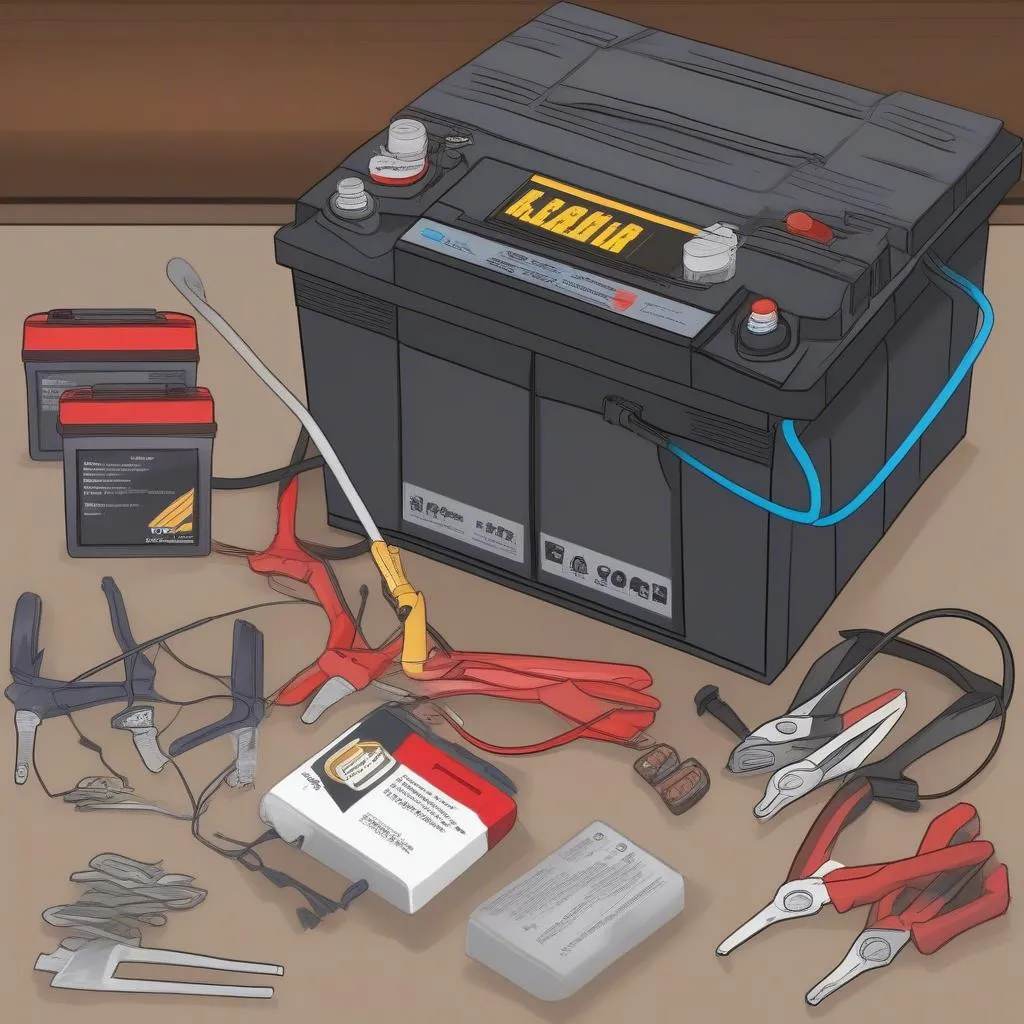Have you ever been stuck in the middle of nowhere with a dead car battery? It’s not a pleasant experience, and it can be a real hassle. But understanding your car battery is essential to keep your vehicle running smoothly. That’s why we’re going to dive into the world of car batteries and what you need to know to keep your car going.
Why Your Car Needs a Battery
A car battery is the heart of your car’s electrical system. It’s responsible for powering everything from your headlights and radio to your engine’s starter. Without a functioning battery, your car simply won’t start. Think of it like this: you wouldn’t expect your phone to work without a battery, and the same goes for your car.
Understanding the Car Battery
Types of Car Batteries
Most modern vehicles utilize lead-acid batteries, which are known for their reliability and affordability. These batteries store energy in the form of chemical reactions between lead plates and sulfuric acid. However, newer battery technologies like lithium-ion batteries are starting to gain traction in the automotive industry due to their lighter weight and longer lifespan.
Key Components of a Car Battery
Let’s break down the key components of a lead-acid car battery:
- Positive and Negative Plates: These are the electrodes where the chemical reactions take place.
- Electrolyte: This is a solution of sulfuric acid that conducts electricity between the plates.
- Separator: This material prevents the positive and negative plates from touching, which would cause a short circuit.
- Battery Case: This container protects the battery’s internal components.
- Terminal Posts: These are the points where you connect the battery cables to the car’s electrical system.
Signs of a Failing Car Battery
A failing car battery can leave you stranded at the worst time, so it’s essential to recognize the warning signs:
- Slow engine cranking: If your engine turns over slowly when you try to start it, that’s a sign that your battery is weak.
- Dim headlights: If your headlights are dimmer than usual, this could be a sign that your battery is losing charge.
- Electrical problems: If you’re experiencing other electrical issues, such as flickering lights, a faulty radio, or problems with power accessories, this might be a sign of a failing battery.
- Battery swelling or leaking: These are serious signs of a damaged battery that should be replaced immediately.
How to Extend Your Car Battery’s Life
To maximize the lifespan of your car battery, follow these tips:
- Regular maintenance: Ensure your battery terminals are clean and free of corrosion. You can clean them with a mixture of baking soda and water.
- Avoid extreme temperatures: Extreme heat and cold can significantly shorten your battery’s lifespan.
- Minimize short trips: Short trips prevent the battery from fully charging, leading to faster wear.
- Don’t leave your lights on: Leaving your headlights or other accessories on when the engine is off can drain your battery quickly.
Frequently Asked Questions about Car Batteries
How long does a car battery last?
The average lifespan of a car battery is 3 to 5 years. However, this can vary depending on factors such as driving habits, climate, and maintenance.
What should I do if my car battery dies?
If your car battery dies, you can try jump-starting it using a set of jumper cables and another car with a working battery. However, if you’re not comfortable with this procedure, it’s best to call a tow truck or roadside assistance.
How often should I replace my car battery?
It’s generally recommended to replace your car battery every 3 to 5 years, or sooner if you notice any of the warning signs of a failing battery.
What are the symptoms of a bad car battery?
Symptoms of a bad car battery include slow engine cranking, dim headlights, electrical problems, and battery swelling or leaking.
Choosing the Right Car Battery
When it’s time to replace your car battery, consider these factors:
- Battery type: Lead-acid batteries are still the most common, but lithium-ion batteries are becoming increasingly popular.
- Battery size: Ensure the new battery is the correct size for your vehicle.
- Battery capacity: This refers to the amount of energy the battery can store, which is measured in amp-hours (Ah). A higher capacity battery will provide more starting power and last longer.
- Cold cranking amps (CCA): This rating indicates how much current the battery can deliver at cold temperatures.
Getting Help with Car Battery Problems
If you’re experiencing issues with your car battery, or you just need advice on choosing the right one, don’t hesitate to reach out to a professional mechanic. They can diagnose the problem and help you find the right solution.
 Car battery maintenance guide
Car battery maintenance guide
Final Thoughts
Having a healthy car battery is crucial for your vehicle’s overall performance and safety. By understanding the basics of car batteries, recognizing warning signs, and practicing good maintenance habits, you can ensure your battery stays in tip-top shape and avoids leaving you stranded.
If you’re experiencing car battery problems, don’t hesitate to reach out! We can help you get back on the road quickly.


